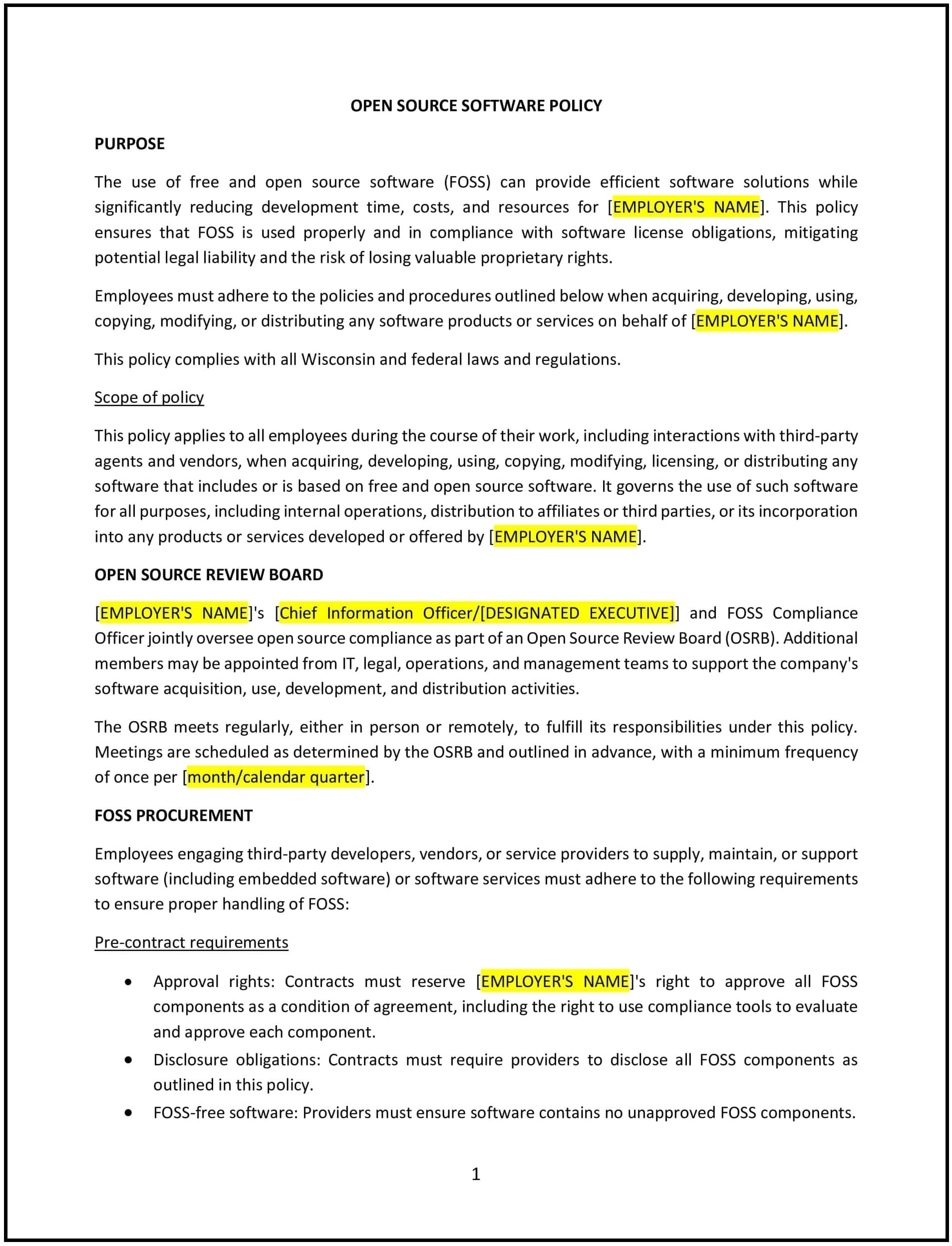Open source software policy (Wisconsin): Free template
Got contracts to review? While you're here for policies, let Cobrief make contract review effortless—start your free review now.

Customize this template for free
Open source software policy (Wisconsin)
An open source software policy helps Wisconsin businesses manage the use, distribution, and contribution to open source software within the organization. This policy outlines the procedures for evaluating, integrating, and complying with licensing requirements, ensuring that the business respects intellectual property rights while leveraging open source tools.
By implementing this policy, businesses can safely use open source software, avoid legal risks, and contribute to the open source community responsibly.
How to use this open source software policy (Wisconsin)
- Define open source software: Clearly define what constitutes open source software, including its licensing types (e.g., GPL, MIT, Apache) and any relevant criteria.
- Establish approval processes: Set procedures for evaluating and approving the use of open source software within the company, including assessing compliance with licensing agreements and ensuring compatibility with existing systems.
- Address contributions: Outline guidelines for contributing to open source projects, ensuring that contributions do not infringe on the company’s intellectual property or conflict with business interests.
- Comply with licenses: Provide procedures for tracking and managing open source licenses to ensure compliance with the terms and conditions specified by each software's license.
- Protect intellectual property: Specify how employees should handle proprietary code when integrating open source software, ensuring that business-sensitive code or resources are not inadvertently shared.
- Train employees: Provide training for relevant employees on the implications of open source software, including the potential legal risks and the importance of following licensing requirements.
Benefits of using this open source software policy (Wisconsin)
This policy offers several benefits for Wisconsin businesses:
- Promotes legal compliance: Helps prevent legal issues related to intellectual property rights by improving compliance with open source software licenses.
- Protects company resources: Safeguards proprietary code and business-sensitive information from being unintentionally shared with the public.
- Promotes responsible contributions: Encourages employees to contribute to open source projects in a way that aligns with the company’s interests and respects intellectual property.
- Supports innovation: Allows the company to use open source software to foster innovation and reduce development costs while ensuring proper management.
- Enhances transparency: Provides clear guidelines on the acceptable use of open source software, creating a culture of compliance and responsibility.
Tips for using this open source software policy (Wisconsin)
- Communicate the policy clearly: Ensure all employees understand the rules for using, evaluating, and contributing to open source software within the company.
- Regularly review licenses: Maintain an up-to-date list of open source software and ensure that licenses are reviewed regularly to be compliant.
- Monitor usage: Track the open source software being used within the company to ensure that no unauthorized software or non-compliant versions are integrated.
- Provide legal guidance: Offer employees access to legal resources or counsel when evaluating the implications of using or contributing to open source software.
- Update the policy: Regularly update the policy to account for changes in licensing requirements, new software tools, or shifts in business needs.